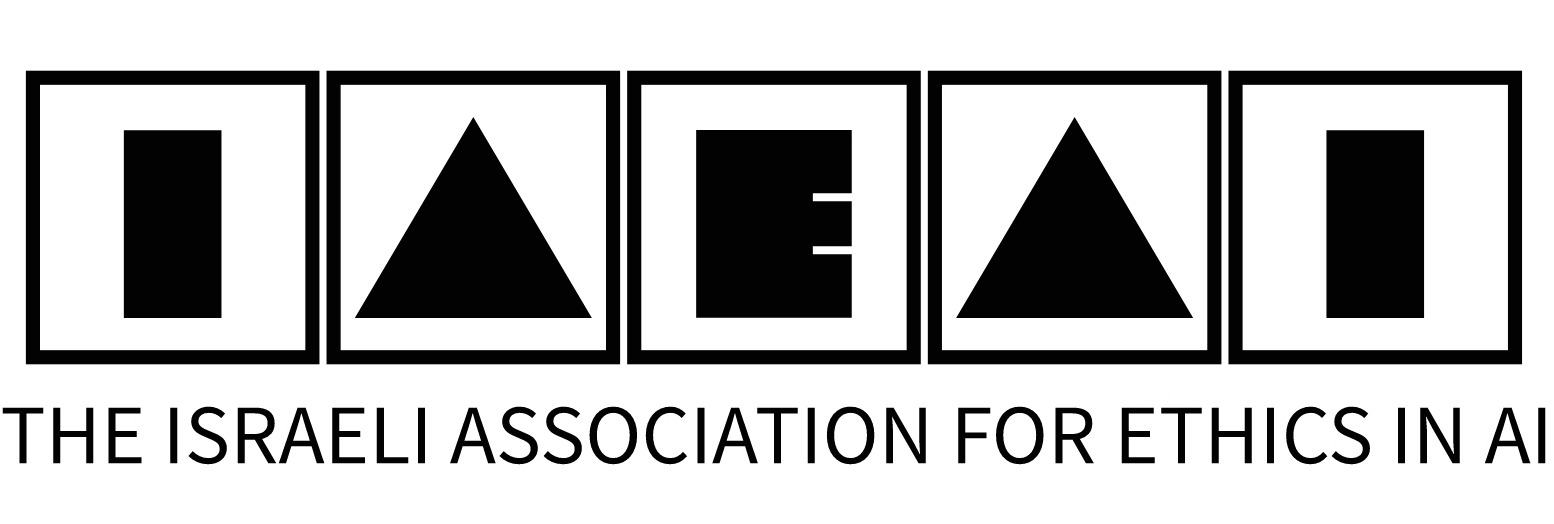Research
Research projects initiated by the The Israeli Association for Ethics in Artificial Intelligence will be released shortly
The Israeli Association for Ethics in Artificial Intelligence (IAEAI) aims to promote ethical development, deployment, and usage of artificial intelligence technologies. By conducting cutting-edge research and surveys, the association can contribute to the growing body of knowledge on AI ethics, foster collaboration among stakeholders, and help shape responsible AI practices.
Research activities at the IAEAI could encompass a wide range of topics, including fairness and inclusivity in AI systems, transparency and explainability, AI's societal and environmental impact, AI governance, and accountability. By examining these areas, the association can help identify potential ethical challenges, recommend best practices, and contribute to the development of AI ethics frameworks and guidelines.
IAEAI is also conducting surveys to gather valuable insights from various stakeholders, including venture capitalists, international corporations, and universities. These surveys can help gauge the current state of AI ethics in different sectors, identify areas of improvement, and inform the association's policy recommendations.
For instance, a survey targeting venture capitalists could explore their investment priorities concerning ethical AI, assess the importance of ethical considerations in their decision-making processes, and inquire about the proportion of investments allocated to AI projects with a strong ethical focus.
A survey of international corporations might investigate their ethical AI development practices, such as the presence of formalized ethical AI policies or guidelines, strategies for incorporating ethical considerations into AI research and development, and measures taken to ensure transparency, interpretability, and fairness in AI systems.
Additionally, a survey of universities could delve into AI ethics education and curricula, examining the extent to which AI ethics topics are integrated into AI-related courses, the specific ethical issues covered, and the challenges faced by educational institutions in incorporating AI ethics into their programs.
Collaborative approaches to AI ethics could also be explored through surveys, assessing the importance of collaboration among different stakeholders, the types of collaborations currently taking place, and the perceived benefits and challenges of collaborative efforts.
Through these research activities and surveys, the Israeli Association for Ethics in Artificial Intelligence can significantly contribute to advancing ethical AI practices, fostering responsible AI development, and promoting collaboration among stakeholders to address pressing AI ethics challenges.
Research activities at the IAEAI could encompass a wide range of topics, including fairness and inclusivity in AI systems, transparency and explainability, AI's societal and environmental impact, AI governance, and accountability. By examining these areas, the association can help identify potential ethical challenges, recommend best practices, and contribute to the development of AI ethics frameworks and guidelines.
IAEAI is also conducting surveys to gather valuable insights from various stakeholders, including venture capitalists, international corporations, and universities. These surveys can help gauge the current state of AI ethics in different sectors, identify areas of improvement, and inform the association's policy recommendations.
For instance, a survey targeting venture capitalists could explore their investment priorities concerning ethical AI, assess the importance of ethical considerations in their decision-making processes, and inquire about the proportion of investments allocated to AI projects with a strong ethical focus.
A survey of international corporations might investigate their ethical AI development practices, such as the presence of formalized ethical AI policies or guidelines, strategies for incorporating ethical considerations into AI research and development, and measures taken to ensure transparency, interpretability, and fairness in AI systems.
Additionally, a survey of universities could delve into AI ethics education and curricula, examining the extent to which AI ethics topics are integrated into AI-related courses, the specific ethical issues covered, and the challenges faced by educational institutions in incorporating AI ethics into their programs.
Collaborative approaches to AI ethics could also be explored through surveys, assessing the importance of collaboration among different stakeholders, the types of collaborations currently taking place, and the perceived benefits and challenges of collaborative efforts.
Through these research activities and surveys, the Israeli Association for Ethics in Artificial Intelligence can significantly contribute to advancing ethical AI practices, fostering responsible AI development, and promoting collaboration among stakeholders to address pressing AI ethics challenges.
Cookies managing
Cookie Settings
Cookies necessary for the correct operation of the site are always enabled.
Other cookies are configurable.
Other cookies are configurable.
